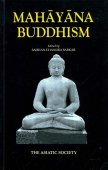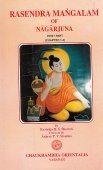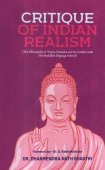Kumarila, Kumārila: 7 definitions
Introduction:
Kumarila means something in Hinduism, Sanskrit. If you want to know the exact meaning, history, etymology or English translation of this term then check out the descriptions on this page. Add your comment or reference to a book if you want to contribute to this summary article.
In Hinduism
General definition (in Hinduism)
Source: IKGA: AsiaKumārila (ca. 600-650), a representative of the Brahmanic tradition of Mīmāṃsā, which is particularly concerned with the exegesis of Veda and ritual analysis, is one of the most influential philosophers apart from his main adversary Dharmakīrti (ca. 600–660) and like him has greatly shaped the philosophy of the following centuries. In his Ślokavārttika, Kumārila ponders the questions of ontology, epistemology, philosophy of language, ethics, religion, and many others.
Source: WikiPedia: HinduismKumārila Bhaṭṭa (कुमारिल भट्ट, fl. roughly AD 700) was a maithil brahmin Hindu philosopher and Mimamsa scholar from Assam. He is famous for many of his seminal theses on Mimamsa, such as Mimamsaslokavarttika. Bhaṭṭa was a staunch believer in the supreme validity of Vedic injunction, a great champion of Purva-Mimamsa and a confirmed ritualist. The varttika is mainly written as a subcommentary of Sabara's commentary on Jaimini's Purva Mimamsa Sutra. His philosophy is classified by some scholars as existential realism.
Source: Austrian Academy of Sciences Press: Kumārila on Truth, Omniscience, and KillingKumārila is commonly regarded as having been one of the most brilliant brahmanical philosophers of the Classical Period in India, a thinker whose ideas influenced almost all later brahmanical thought. Of his works, the Ślokavārttika is possibly the most important. Defending the authoritativeness of the Vedic scripture, in the codanāsūtra section Kumārila discusses theories concerning truth, omniscience, and ritual killing.
Languages of India and abroad
Sanskrit dictionary
Source: Cologne Digital Sanskrit Dictionaries: Cappeller Sanskrit-English DictionaryKumārila (कुमारिल).—[masculine] [Name] of a philosophical teacher.
Source: Cologne Digital Sanskrit Dictionaries: Monier-Williams Sanskrit-English DictionaryKumārila (कुमारिल):—[from kumāra] m. Name of a renowned teacher of the Mīmāṃsā philosophy.
[Sanskrit to German]
Sanskrit, also spelled संस्कृतम् (saṃskṛtam), is an ancient language of India commonly seen as the grandmother of the Indo-European language family (even English!). Closely allied with Prakrit and Pali, Sanskrit is more exhaustive in both grammar and terms and has the most extensive collection of literature in the world, greatly surpassing its sister-languages Greek and Latin.
See also (Relevant definitions)
Starts with: Kumarilabhatta, Kumarilasvamin.
Full-text (+122): Bhatta, Shlokavarttika, Tautatita, Tautatika, Kaumarila, Brihattika, Madhyamatika, Tutata, Jvalanabhu, Abhihotavai, Laghuvarttika, Tantravarttika, Varttikakara, Bhattadarshana, Kumarilasvamin, Kumarilabhatta, Kumaralila, Anushasti, Abhihoma, Mimamsavarttika.
Relevant text
Search found 58 books and stories containing Kumarila, Kumārila; (plurals include: Kumarilas, Kumārilas). You can also click to the full overview containing English textual excerpts. Below are direct links for the most relevant articles:
The validity of Anumana (inference) in Nyaya system (by Babu C. D)
The Tattvasangraha [with commentary] (by Ganganatha Jha)
Verse 1443-1446 < [Chapter 18 - Inference]
Verse 1140 < [Chapter 16 - Examination of the Import of Words]
Verse 2016 < [Chapter 23 - External World]
Formal Education System in Ancient India (by Sushmita Nath)
The Vidyārambha Saṃskāra < [Chapter 2 - Rituals of the Education System]
Concept of Mind in the Major Upanishads (by Gisha K. Narayanan)
5. The Concept of Mind in Pūrvamīmāṃsa < [Chapter 3 - The concept of Mind in the Darśanas]
Mimamsa interpretation of Vedic Injunctions (Vidhi) (by Shreebas Debnath)
Chapter 2.8 - Verbal Understanding of Injunction
Chapter 2.7 - Kumārila Bhaṭṭa and Prabhākara Miśra on Vidhi
A History of Indian Philosophy Volume 1 (by Surendranath Dasgupta)
Part 2 - The Mīmāṃsā Literature < [Chapter IX - Mīmāṃsā Philosophy]
Part 5 - Indeterminate and determinate perception < [Chapter IX - Mīmāṃsā Philosophy]
Part 9 - Inference < [Chapter IX - Mīmāṃsā Philosophy]
Related products




